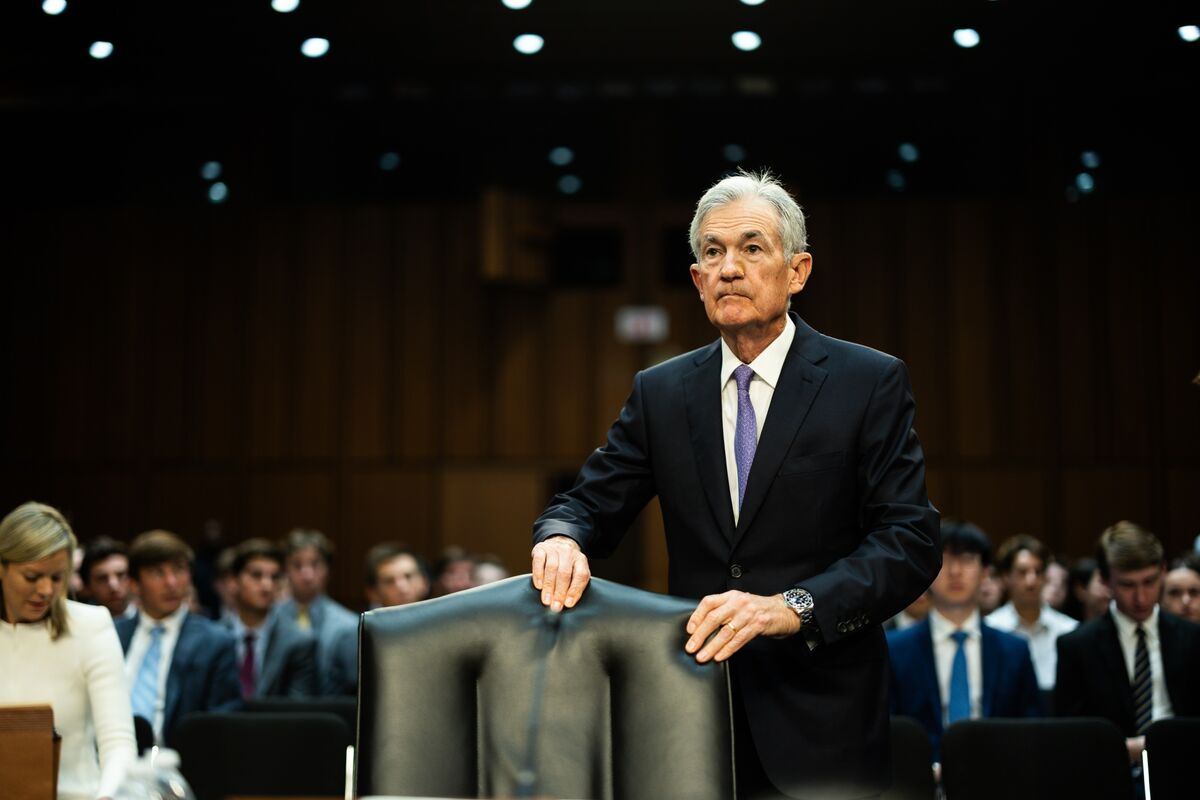September rate cut in sight! Powell admits U.S. employment has "slowed dramatically"
But he also pointedly noted that "rising inflation is not the only risk we face."A rate cut "too late or too little" could also "unduly weaken economic activity and employment," he said.
On July 9th, Federal Reserve Chairman Jerome Powell testified before the U.S. Congress, stating that the Fed is currently facing two major issues—cooling job market and persistently high prices.
Looking first at inflation, Powell stated at the Senate Committee on Banking, Housing, and Urban Affairs that recent readings indicate further progress in prices, and "more good data" will bolster confidence. He emphasized that although inflation has eased, it is still above the 2% target, and policymakers remain firmly committed to reducing the inflation rate to 2%.
However, he also pointed out sharply, "The rise in inflation is not the only risk we face." He said, "Cutting rates too late or too little could also "inappropriately weaken economic activity and employment."
Public information shows that from March 2022 to July 2023, the Federal Reserve raised the benchmark interest rate 11 times to 5.3%, a 20-year high, to combat inflation that peaked at 9.1% two years ago. The Fed's prolonged rate hikes have raised the borrowing rates for U.S. mortgages, auto loans, and other forms of credit, thereby increasing the credit costs for the American public. Although the Fed's rate hikes were intended to slow down borrowing and spending to cool the U.S. economy, after controlling inflation, the high interest rates in the U.S. have instead severely impacted the job market.
On Tuesday, Powell noted that the inflation reports for the first three months of this year did not strengthen the Fed officials' confidence that inflation is under control. However, he testified in Congress, saying, "The latest inflation readings have shown some moderate further progress, and more good data will enhance our confidence that inflation is moving sustainably towards 2%."
EY Chief Economist Gregory Daco believes, "Powell's timely attention to the double-sided risks of policy on the economy is commendable, but a bit too late." In Daco's view, the Federal Reserve should start cutting rates in July, otherwise, as the economy slows down, American companies may soon accelerate layoffs.
Regarding the job market, Powell said that the growth of the U.S. labor force has "significantly slowed down." He also said that after the strong expansion in the second half of last year, the U.S. economic growth has shown a trend of slowing down. In June, the U.S. unemployment rate rose for the third consecutive month to 4.1%.
Like his previous speech, Powell maintained a cautious dovish stance in Congress and insisted on not indicating any specific time for the Fed to cut rates.
In response to a question from Rhode Island Democratic Senator Jack Reed, Powell said, "The next policy move seems unlikely to be a rate hike. As we make more progress on inflation, we will start to ease policy at the appropriate time." Wall Street said that although the Fed Chairman remained silent, his testimony has in fact strengthened investors' expectations for a rate cut in September.
On other issues, when asked about the final plan of Basel III, Powell revealed that the Federal Reserve "has had a series of discussions on potential changes," but refused to specify the exact changes, "My view and the committee's is that we need to publicly solicit opinions on the revised proposal for a period of time."
Powell said, "We are discussing this issue with the Federal Deposit Insurance Corporation and the Office of the Comptroller of the Currency (OCC), but no agreement has been reached yet," Powell said, "When we reach an agreement with other agencies, we will announce the proposed changes and their potential impact, and the public comment period may be 60 days."
Talking about the U.S. real estate, Powell said, "Our country has a major housing problem, the epidemic has caused new distortions in the real estate market, and at the same time, the tightening policy has had an impact on the activities of the real estate industry." He pointed out that the best approach for the real estate market is to reduce the inflation rate to 2%.
Powell avoided the question of "the potential impact of tariffs on prices if Trump is re-elected," saying, "We try not to comment on election-type information." But he pointed out that the independence of the Federal Reserve is a good system, which is widely recognized.
The next Federal Reserve meeting will be held on July 31st. As of the time of writing, according to CME's "FedWatch": The probability of the Federal Reserve keeping the interest rate unchanged in August is 95.3%, and the probability of cutting rates by 25 basis points is 4.7%. The probability of the Federal Reserve keeping the interest rate unchanged in September is 26.7%, the cumulative probability of cutting rates by 25 basis points is 70.0%, and the cumulative probability of cutting rates by 50 basis points is 3.3%.

·Original
Disclaimer: The views in this article are from the original Creator and do not represent the views or position of Hawk Insight. The content of the article is for reference, communication and learning only, and does not constitute investment advice. If it involves copyright issues, please contact us for deletion.